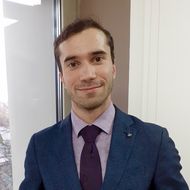- A
- A
- A
- ABC
- ABC
- ABC
- А
- А
- А
- А
- А
- HSE University
- Faculties
- Faculty of Economic Sciences
- School of Finance
- News
- Research & Expertise
- Intellectual Capital to Be Discussed at HSE St. Petersburg
-
The School
-
RESEARCH ACTIVITIES
- Laboratories
- Series “Advanced studies in emerging market’s finance” at Springer Nature o Networking with international academic associations
- Networking with international academic associations
- Research seminars
- International PhD workshop
- The International Seminar «ESG Transformation»
-
RESEARCH WORKING GROUPS
- Research Working Group "Innovations in the banking sector, its financial stability and prudential regulation"
- BUSINESS EDUCATION
- Networking with business associations
- Networking with professional associations
- Center for Research on Non-Financial Reporting
-
DATABASES
119049 Moscow, Russia
11 Pokrovskiy boulevard, room S629
Phone:
+7 (495) 772-95-90*27447, *27947, *27190
+7 (495) 916-88-08 (Master’s Programme Corporate Finance)
- Email: df@hse.ru
Head of Corporate Finance Research Center, Dr., tenured professor

+7495-772-95-90 (add. 27447)

+7495-772-95-90 (add. 27947)
The HSE School of Finance is the leading Russian competence center in the field of corporate finance, business valuation, banking, stock market, risk management and insurance, accounting and audit.
HSE is the first Russian university in the global ranking "QS - World University Rankings by subject", 2022 in the subject area of Accounting and Finance. Moreover, the university is the 1-st in the rating "THE World University Rankings by subject" in the subject area of Business & Management Studies, 2022
Cherkasova V. A., Nenuzhenko I.
Journal of Economic Integration. 2022. Vol. 37. No. 1. P. 54-92.
Electronic Journal of Applied Statistical Analysis. 2022. Vol. 15. No. 1. P. 187-210.
Kolade S. A., Semenova M.
Financial Economics. FE. Высшая школа экономики, 2022. No. WP BRP 87/FE/2022.
Управление финансовыми рисками. 2022. Т. 70. № 2. С. 108-120.
In bk.: The 8th International Conference on Information Technology and Quantitative Management (ITQM 2020 & 2021): Developing Global Digital Economy after COVID-19. Vol. 199: The 8th International Conference on Information Technology and Quantitative Management (ITQM 2020 & 2021): Developing Global Digital Economy after COVID-19. Manchester: Elsevier, 2022. P. 798-805.
Korablev D., Poduhovich D.
Journal of Corporate Finance Research. 2022. Vol. 16. No. 1. P. 136-145.
Olkhovik V., Lyutova O. I., Juchnevicius E.
Научно-исследовательский финансовый институт. Финансовый журнал. 2022. Vol. 14. No. 2. P. 73-90.
Churyk N. T., Anna Vysotskaya, Kolk B. v.
Journal of Accounting Education. 2022. Vol. 58.
Абдрахманова Г. И., Васильковский С. А., Вишневский К. О. и др.
М.: Издательский дом ГУ-ВШЭ, 2022.
Абдрахманова Г. И., Васильковский С. А., Вишневский К. О. и др.
М.: Национальный исследовательский университет "Высшая школа экономики", 2022.
Гришунин С. В., Сулоева С. Б., Пищалкина И. И.
Организатор производства. 2022. Т. 30. № 1. С. 60-72.
Гришунин С. В., Сулоева С. Б., Пищалкина И. И.
Экономический анализ: теория и практика. 2022. Т. 21. № 3. С. 478-496.
S. Grishunin, E. Naumova, N. Lukshina et al.
Russian Management Journal. 2021. Vol. 19. No. 4. P. 475-493.
Journal of Corporate Finance Research. 2022. Vol. 16. No. 1. P. 99-112.
Grishunin S., Bukreeva Alesya, Alyona A.
In bk.: The 8th International Conference on Information Technology and Quantitative Management (ITQM 2020 & 2021): Developing Global Digital Economy after COVID-19. Vol. 199: The 8th International Conference on Information Technology and Quantitative Management (ITQM 2020 & 2021): Developing Global Digital Economy after COVID-19. Manchester: Elsevier, 2022. P. 190-197.
 International Conference “Future Directions in Accounting and Finance Education”, 27-28 May 2019, Moscow, Russia
International Conference “Future Directions in Accounting and Finance Education”, 27-28 May 2019, Moscow, Russia
Edited by: А. Б. Высотская, B. v. Kolk.
Vol. 58. Elsevier, 2022.
Karamysheva M., Seregina E.
Journal of International Money and Finance. 2022. Vol. 127.
In press
Journal of Economic Dynamics and Control. 2022. Vol. 137.
Karamysheva M., Skrobotov A.
Journal of Economic Dynamics and Control. 2022. Vol. 138.
Известия Санкт-Петербургского государственного экономического университета. 2022. № 4. С. 144-155.
Тихомиров Д. В., Цехомский Н. В.
Экономика и управление. 2022. Т. 28. № 1. С. 16-24.
Селезнёва З. В., Евдокимова М. С.
Финансы: теория и практика. 2022. Т. 26. № 3. С. 64-84.
Evdokimova M., Stepanova A. N.
In bk.: 38th EBES Conference - Program and Abstract Book. Istanbul: EBES, 2022. P. 39.
Assanskiy A., Shaposhnikov D., Tylkin I. et al.
Journal of Behavioral and Experimental Economics. 2022. Vol. 98.
Teplova T., Mikova E., Munir Q. et al.
Economic Change and Restructuring. 2023. Vol. 56. No. 1. P. 515-535.
Повх К. С., Кокорева М. С., Степанова А. Н.
Экономический журнал Высшей школы экономики. 2022. Т. 26. № 1. С. 9-36.
Anton Markov, Zinaida Seleznyova, Victor Lapshin.
Journal of Finance and Data Science. 2022. Vol. 8. P. 180-201.

Intellectual Capital to Be Discussed at HSE St. Petersburg

The 12th Annual International Workshop ‘Intangibles, Intellectual Capital and Extra-Financial Information’ will take place from September 22 – 23, 2016, at HSE’s campus in St. Petersburg. The workshop is being organized by the European Institute for Advanced Studies in Management (EIASM) in conjunction with HSE and the University of Ferrara. This event will be a new step in the long history of this forum, which is aimed at academic exchange of theoretical and empirical qualitative and quantitative research regarding intellectual capital.
The event’s coordinators include Irina Ivashkovskaya, Tenured Professor at HSE, and Stefano Zambon, Professor of the University of Ferrara, Chairman of the World Intellectual Capital/Assets Initiative Network Europe (WICI Europe). HSE St. Petersburg is represented by Elena Rogova, Dean of the St. Petersburg School of Economics and Management, and Sergey Kadochnikov, Director of HSE St. Petersburg. Professor Kadochnikov will deliver a welcome address at the opening of the conference.
Intellectual capital (IC) is the basis of well-being in contemporary society. In particular, it determines the competitive ability of economies and is a key resource for their subsequent development. The process of creating, transforming and using IC involves private companies, public institutions and non-profit organizations.
Professor Schwaiger, a conference participant and Dean of Studies of the Munich School of Management at Ludwig-Maximilians-Universität München, will speak on ‘Reputation as Intangible Asset’. His presentation outlines the problem as follows:
‘We have many tools to manage tangible assets, like production optimization, sourcing manuals etc., but the tools we have for managing intangibles are rather scarce. During the dotcom-bubble in 2000, 85% of the market capitalization of the 500 largest listed companies in the US were based on intangibles, meaning that for every dollar you paid, the tangibles you received – like buildings, property, machines, fleet etc., – usually only came to 15 cents. In recent years (2014/15), the proportion of intangible assets has been about two thirds in Germany, as well as in the US.’
Another participant of the event, Carla Millar, Professor of International Marketing & Management at University of Twente, comments that ‘the measurement, reporting and management of IC at the firm level has become a central issue in growth strategies throughout the world, owing to the inevitable movement towards a knowledge economy. Issues relating to the role of IC in enhancing change and creative destruction within firms and entire industries are amongst the priorities on both corporate and government agendas.’
Commenting about IC and, particularly, the current situation in Russia, she notes that ‘on the whole, research on these matters in Russia is scarce, and this international conference presents an opportunity to learn and share knowledge.’
‘One of the tasks for the conference’s Russian participants is to promote research in IC, as well as its assessment, management and reporting. An important aim is also to establish a dialogue with the business community, which is currently developing applied projects in this area,’ said Irina Ivashkovskaya, Tenured HSE Professor and co-organizer of the conference. Furthermore, a long-term goal of this event is to promote interest among the business community and regulator in enhancing the activities for non-financial reporting as part of the Global Reporting Initiative (GRI).
Several aspects of IC studies will be discussed during the workshop. This will cover such issues as managing and reporting on IC, disclosure of such information, the relationship between IC and financial performance, and its role in corporate social reporting and sustainability. Also, a special session will analyze IC in the public sphere, particularly with respect to education and health care.
Several international experts, including Neil Stevenson (Managing Director: Global Implementation, International Integrated Reporting Council (IIRC)), John Dumay (Macquarie University, Sydney), Mario Abela (University of London) and others will take part in the event.
Furthermore, at the end of the workshop, the ‘Best Junior Contribution to Intangibles and IC Theory and Practice Award’ will be conferred.
- About
- About
- Key Figures & Facts
- Faculties & Departments
- International Partnerships
- Faculty & Staff
- HSE Buildings
- Public Enquiries
- Studies
- Admissions
- Programme Catalogue
- Undergraduate
- Graduate
- Exchange Programmes
- Summer University
- Summer Schools
- Semester in Moscow
- Business Internship
-
https://elearning.hse.ru/en/mooc/
Massive Open Online Courses
-
https://www.hse.ru/en/visual/
HSE Site for the Visually Impaired
-
http://5top100.com/
Russian Academic Excellence Project 5-100
- © HSE University 1993–2024 Contacts Copyright Privacy Policy Site Map
- Edit


